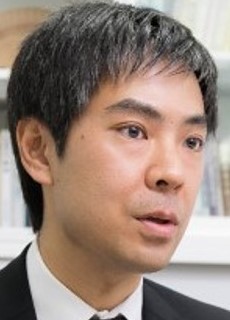 Harry Gray (Introductory Lecture), Caltech, United States
Harry Gray (Introductory Lecture), Caltech, United States
Harry Gray is the Arnold O. Beckman Professor of Chemistry and the Founding Director of the Beckman Institute at the California Institute of Technology. After graduate work at Northwestern University and postdoctoral research at the University of Copenhagen, he joined the chemistry faculty at Columbia University, where in the early 1960s he developed ligand field theory to interpret the electronic structures of transition metal complexes. After moving to Caltech in 1966, he began work in inorganic photochemistry that led to the development of light absorbers and robust catalysts for the production of solar fuels. He also began research in biological inorganic chemistry, demonstrating that electrons can tunnel rapidly over long molecular distances through metalloproteins. This discovery opened the way for work that shed light on electron flow in respiration and photosynthesis. He has received the Centenary Medal (1985); the National Medal of Science (1986); the Linderstrøm-Lang Prize (1992); the Harvey Prize (2000); the Benjamin Franklin Medal (2004); the Wolf Prize (2004); the City of Florence Prize (2006); the Welch Award in Chemistry (2009); the Othmer Gold Medal (2013); the T. W. Richards Medal (2014); the MacDiarmid Medal (2017); the Westheimer Prize (2018); the Cotton Medal (2018); seven national ACS awards, including the Priestley Medal (1991); and 22 honorary doctorates. He is a member of the National Academy of Sciences; the American Academy of Arts and Sciences; the American Philosophical Society; a foreign member of the Royal Society; Royal Danish Academy of Sciences; Royal Swedish Academy of Sciences; and the Accademia Nazionale dei Lincei.
 Frédéric Beisson, CNRS, France
Frédéric Beisson, CNRS, France
Frédéric Beisson obtained his PhD in Biochemistry from the University of Aix-Marseille in 1999 working on plant lipid bodies and lipases. He then joined in 2001 the laboratory of Pr. John Ohlrogge at the Plant Biology Department of Michigan State University as a postdoctoral fellow to work on the biosynthesis of the plant lipid polyesters cutin and suberin. He was appointed as a permanent researcher at the CNRS in 2008 in Bordeaux and is currently a CNRS research director at the Institute of Biosciences and Biotechnologies in Cadarache, southern France.
Throughout his career Fred has focused on enzyme discovery in plant and algal lipid metabolism. He is currently investigating the biological roles, mechanism and biotechnological applications of the fatty acid photodecarboxylase he has discovered a few years ago in microalgae.
 Tiago Guerra, A4F - Algae for Future, Portugal
Tiago Guerra, A4F - Algae for Future, Portugal
Tiago Guerra holds a biology degree from the School of Sciences of the University of Lisbon, in 2001, and a Chemistry PhD in algal biotechnologies from Princeton University, in 2013. Since then, during 7 years at A4F, Algae for Future, first as a post-Doc and after as a Senior Project manager, he managed several international R&D projects. As the R&D executive officer at A4F, he was responsible for the development of all National and international competitive R&D grants and for the operations of the Laboratory and Pilot Unit. His focus was to develop microalgae production technologies and applications that could be scalable for industrial implementation in synergy with other industrial processes and activities. His increased interest in the algae markets and applications business, led to him pursuing an MBA at Católica | Nova | MIT Joint program. He has recently become the manager of the newly formed company Algikey, Algae based solutions. Algikey belongs to the A4F group and focuses on the commercialization of algae biomass and products for food, feed, cosmetic and other applications. He is driven by sustainability issues and focused on delivering value to customers with algae-based products.
 Pia Lindberg, Uppsala Universitet, Sweden
Pia Lindberg, Uppsala Universitet, Sweden
Dr. Pia Lindberg obtained her PhD at Uppsala University, Sweden in 2003, followed by postdoctoral work at CEA Saclay and at the Department of Plant and Microbial Biology at UC Berkeley. Throughout her career she has focused on engineering of photosynthetic microbes for generation of solar fuels and chemicals. She is currently an associate professor at Uppsala University, where her group is developing metabolically engineered cyanobacteria for direct production of terpenes and other useful hydrocarbon compounds from CO2.
 Ted Sargent , University to Toronto, Canada
Ted Sargent , University to Toronto, Canada
Ted Sargent holds the rank of University Professor at the University of Toronto, where he has been on the faculty since 1998. He earned the BScEng (Engineering Physics) from Queen’s University in 1995 and the PhD from the University of Toronto in 1998.
 Kevin Sivula, EPFL, Switzerland
Kevin Sivula, EPFL, Switzerland
Originally from the United States, Prof. Sivula studied at the University of Minnesota, obtaining a Bachelor degree in Chemical Engineering in 2002, and at the University of California, Berkeley, completing a doctorate in 2007 under the direction of Prof. Jean Fréchet. He then joined Prof. Michael Grätzel’s group at EPFL as a postdoc, and in 2011 he began an independent research program in the Institute of Chemical Sciences and Engineering at EPFL, where he was promoted to Associate Professor of Chemical Engineering in 2018. He directs the Laboratory for molecular engineering of optoelectronic nanomaterials (LIMNO), and teaches courses in transport phenomena, chemical product design, and solar energy conversion.
 Li-Zhu Wu, Chinese Academy of Sciences, China
Li-Zhu Wu, Chinese Academy of Sciences, China
Li-Zhu Wu received her B.S. degree in chemistry from Lanzhou University in 1990, and got her Ph.D. degree from the Institute of Photographic Chemistry, the Chinese Academy of Sciences, under the supervision of Professor Chen-Ho Tung in 1995. From 1995−1998, she worked at the Institute of Photographic Chemistry as an associate professor. After a postdoctoral stay (1997−1998) at the University of Hong Kong working with Professor Chi-Ming Che, she returned to the Technical Institute of Physics and Chemistry, the Chinese Academy of Sciences, as a full professor. In 2019, Professor Li-Zhu Wu was elected as a member of Chinese Academy of Sciences. Her research interests are focused on photochemical conversion, including artificial photosynthesis, visible light catalysis for organic transformation, and photoinduced electron transfer, energy transfer and chemical reactions in supramolecular systems.
 Sophia Haussener, EPFL, Switzerland
Sophia Haussener, EPFL, Switzerland
Sophia Haussener is an Associate Professor heading the Laboratory of Renewable Energy Science and Engineering at the Ecole Polytechnique Fédérale de Lausanne (EPFL). Her current research is focused on providing design guidelines for thermal, thermochemical, and photoelectrochemical (or combinations thereof) energy conversion reactors through multi-physics modeling and demonstration. Her research interests include: thermal sciences, fluid dynamics, charge transfer, electro-magnetism, and thermo/electro/photochemistry in complex multi-phase media on multiple scales. She received her PhD (2010) in Mechanical Engineering from ETH Zurich. Between 2011 and 2012, she was a postdoctoral researcher at the Joint Center of Artificial Photosynthesis (JCAP) and the Energy Environmental Technology Division of the Lawrence Berkeley National Laboratory (LBNL). She has published over 80 articles in peer-reviewed journals and is recipient of the Prix Zonta (2015), the Global Change Award (2017) and the Viskanta Award (2019).
 Kazuhiko Maeda, Tokyo Institute of Technology, Japan
Kazuhiko Maeda, Tokyo Institute of Technology, Japan
Kazuhiko Maeda received his PhD from The University of Tokyo (2007) under the supervision of Professor Kazunari Domen. During 2008–2009, he was a postdoctoral fellow at The Pennsylvania State University, where he worked with Professor Thomas E. Mallouk. He then joined The University of Tokyo as an Assistant Professor in 2009. Moving to Tokyo Institute of Technology in 2012, he was promoted to an Associate Professor. He was also appointed as a PRESTO/JST researcher during 2010–2014. His major research interest is heterogeneous photocatalysis for light to chemical energy conversion, with a focus on water splitting and CO2 fixation. He published more than 200 peer-reviewed papers on international journals with more than 36,500 citations and h-index of 84.
 Hiroyuki Ohta, Tokyo Institute of Technology, Japan
Hiroyuki Ohta, Tokyo Institute of Technology, Japan
Hiroyuki Ohta received Doctor of Agriculture from Kyoto University in 1988. He was appointed as an assistant professor in Tokyo Institute of Technology in 1991, and promoted to a professor in Graduate School of Bioscience and Biotechnology (2007-2015). He is currently a professor in School of Life Science and Technology (2016-).
He has more than 35 years of experience in plant and algal sciences. He started his carrier from research in Kyoto University and became well known by identification of the gene for the biosynthesis of the most abundant membrane lipid, monogalactosyldiacylglycerol, from plants two decades ago. Then, he elucidated the mechanism of membrane lipid biosynthesis in plants and algae. He expanded his research to triacylglycerol (oil) synthesis, particularly in microalgae, and established a novel oil production system using low phosphorus stress as a trigger. His interests also cover evolution of land plants and function of oxylipins, lipid-derived regulatory compounds. By these achievements, he received Terry Galliard Medal from the international plant lipid researcher community in 2018.
 Jenny Yang, University of California Irvine, United States
Jenny Yang, University of California Irvine, United States
Jenny Y. Yang received her BS at UC Berkeley (research with Professor Jeffrey R. Long) and completed her doctoral studies at MIT under the guidance of Professor Daniel G. Nocera. After her postdoctoral position with Dr Daniel L. Dubois at the Pacific Northwest National Laboratory, she was hired as a research scientist in the Center for Molecular Electrocatalysis. After a subsequent position as a scientist at the Joint Center for Artificial Photosynthesis, she started her current position as a faculty member at the University of California, Irvine.
 Jenny Z. Zhang, University of Cambridge, United Kingdom
Jenny Z. Zhang, University of Cambridge, United Kingdom
Jenny completed her PhD in bioinorganic chemistry at the University of Sydney, then became a Marie Curie Incoming International Fellow at the University of Cambridge where she investigated biocatalysts for solar fuels generation. In particular, she developed strategies to re-wire oxidoreductases, such as the water-oxidation enzyme photosystem II, to electrodes and complementary biocatalysts in an emerging field known as 'semi-artificial photosynthesis'. She started her independent group as a BBSRC David Phillips Fellow at the Yusuf Hamied Department of Chemistry in 2018. There, she takes on the re-wiring of photosynthesis to another level of complexity - in living cells.




























